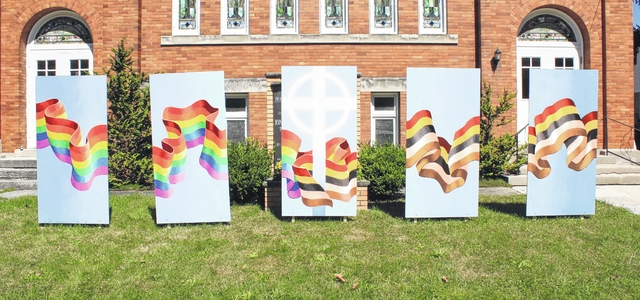"I came late to Christianity," writes Sara Miles, "knocked upside down by a mid-life conversion centered around eating a literal chunk of bread. I hadn't decided to profess an article of doctrine, but discovered a force blowing uncontrollably through the world."
In this new book, Sara Miles tells what happened when she decided to follow the flesh and blood Jesus by doing something real. For everyone afraid to feed hungry strangers, love the unlovable, or go to dark places to bless and heal, she offers hope. She holds out the promise of a God who gave a bunch of housewives and fishermen authority to forgive sins and raise the dead, and who continues to call us to action. And she tells, in vivid, heartbreakingly honest stories, how the ordinary people around her are transformed by taking up God's work in the world.
Sara Miles offers a fresh, fully embodied faith that sweeps away the anxious formulas of religion to reveal the scandalous power of eating with sinners, embracing the unclean, and loving the wrong people. Jesus Freak: Feeding Healing Raising the Dead is her inspiring book for undomesticated Christians who still believe, as she writes, "that Jesus has given us the power to be Jesus."
This book by Sara Miles has been a fascinating read, full of real people and experiences, and I recommend it to you. It's an easy read and challenging at the same time.
Here are three quotes that are samples of what Sara is teaching us through what God has done in her life and the lives of those around them. The bulk of the book, however, is about real life experiences:
In stories that still have the power to scare us, Jesus tells his disciples to live by the upside-down values of God's kingdom, rather than the fear-driven values of human society. He shows how family, tribe, money, violence, and religion--the powers of the world--cannot stand against the love of God. And he tells us that we, too, are called to follow him in breaking down all worldly divisions that get in the way of carrying out his instructions. Sure, it's impossible to feed five thousand people, make a deaf man hear, bring a dead girl to life, as long as you obey human rules. So do it God's way instead, Jesus teaches. Say yes. Jump right in. Come and see. Embrace the wrong people. Don't idolize religion. Have mercy. Jesus' tips cast a light forward, steering us through the dark.
The truth is that suffering can become the foundation of faith, if we're not scared to touch the sore places with love. If we don't hide ourselves away in fear, but get close enough to others to feel God's breath on our skin. Everything that hurts the body of Christ can let us know, past doubt, that new life is possible--not by forgetting evil, but through, in terms that are both religious and secular, truth and reconciliation.
Yet all religions, at one point or another in their evolution, tries to proclaim their single, inerrant consistency. All religions, even the most liberal, were tempted by the reactionary impulse to freeze faith in place. Because, as Jesus teaches, it's easy to be threatened by the reality of the complicated, messy, syncretic, God-bearing truth that becomes incarnate among us and makes things new. We'd rather have a dead religion than a loving God.
jesus freak: feeding, healing, raising the dead by sara miles
(San Francisco: Jossey-Bass, 2010)















